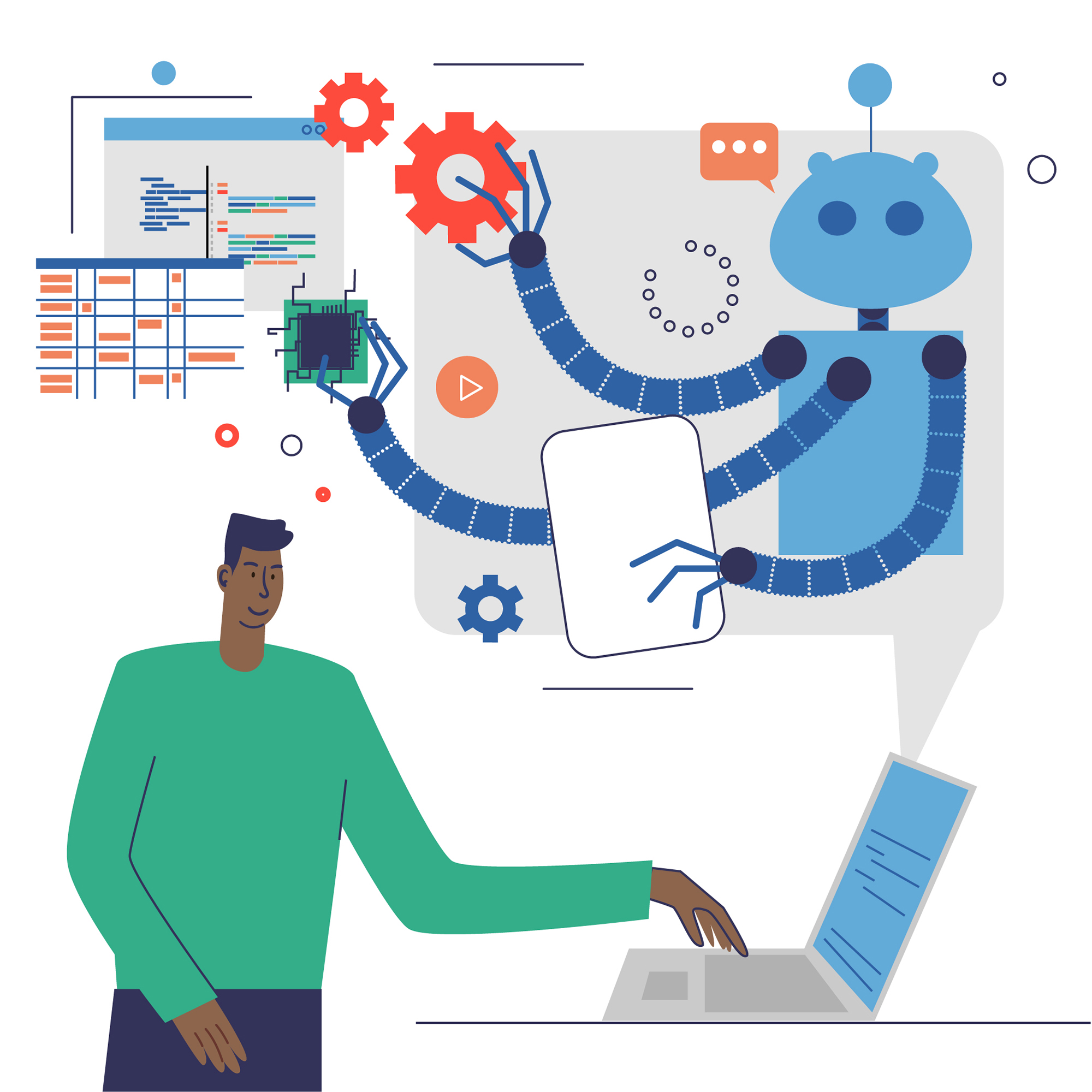Artificial intelligence (AI) is rapidly transforming the world, and non-profit organizations are no exception. AI can be used to improve efficiency, effectiveness, and reach in a variety of ways, from automating tasks to providing personalized services. However, the use of AI also raises a number of ethical, social, and technical challenges.

This blog post will discuss the challenges of responsible AI in non-profit organizations and provide some strategies for addressing them.
Challenges of Responsible AI in non-profit organizations
There are a number of challenges associated with the use of AI in non-profit organizations. These include:
Responsible AI in non-profit organizations encompasses a range of ethical, social, and technical challenges. Here are some common issues related to Responsible AI in non-profit organizations:
1. Bias and discrimination: AI systems can inadvertently perpetuate biases present in the data they are trained on, leading to discriminatory outcomes. Non-profit organizations need to be vigilant in ensuring that their AI models are fair and unbiased, particularly when making decisions that affect marginalized communities.
2. Privacy and data protection: Non-profit organizations often handle sensitive data about their beneficiaries or stakeholders. Implementing AI systems must take into account privacy regulations and ensure that data is protected throughout the AI lifecycle, from collection and storage to processing and sharing.
3. Lack of transparency: AI models are often complex and opaque, making it challenging to understand how they arrive at specific decisions or predictions. Non-profit organizations should strive for transparency by adopting explainable AI techniques, allowing stakeholders to understand and challenge the outcomes of AI systems.
4. Accountability and liability: Determining responsibility and liability can be complex in AI systems, particularly in cases where decisions are automated. Non-profits should consider the legal and ethical implications of their AI systems and establish mechanisms for accountability and recourse in case of adverse outcomes.
5. Human-centric approach: Non-profit organizations often work closely with communities and individuals. Responsible AI should prioritize the human-centered approach, ensuring that the technology complements human expertise and decision-making rather than replacing or marginalizing it.
6. Ethical use of AI: Non-profit organizations need to carefully consider the ethical implications of using AI. This includes ensuring that AI is used to promote social good, adhering to ethical guidelines, and avoiding the deployment of AI systems that could harm individuals or communities.
7. Lack of resources and expertise: Non-profit organizations may face challenges in terms of limited resources and expertise to implement Responsible AI practices. Access to funding, technical knowledge, and collaborations with AI experts can help overcome these barriers.
Addressing these issues requires a multi-stakeholder approach, involving non-profit organizations, AI researchers, policymakers, and the communities affected by AI systems. Collaborative efforts can help develop guidelines, best practices, and regulatory frameworks that promote the responsible and ethical use of AI in non-profit contexts.
Read an interesting blog about: How AI transforms non-profit organizations
Strategies for addressing the challenges of Responsible AI
Overcoming the challenges related to Responsible AI in non-profit organizations requires a proactive and multi-faceted approach. Here are some strategies that can help address these challenges:
1. Education and awareness: Non-profit organizations should prioritize educating their staff, volunteers, and stakeholders about Responsible AI. This includes raising awareness about the ethical considerations, potential biases, and risks associated with AI systems. Training programs, workshops, and resources can help build a culture of responsible AI within the organization.
2. Ethical guidelines and policies: Non-profits should develop clear and comprehensive ethical guidelines and policies regarding the use of AI. These guidelines should address issues such as bias, privacy, transparency, and accountability. They should be regularly reviewed and updated to stay aligned with evolving ethical standards and legal requirements.
3. Data governance: Establishing robust data governance practices is crucial for ensuring responsible AI. Non-profit organizations should have clear policies for data collection, storage, and usage. This includes obtaining informed consent, anonymizing and protecting sensitive data, and regularly auditing data for biases and fairness.
4. Collaboration and partnerships: Non-profits can collaborate with AI experts, research institutions, and other non-profit organizations to leverage their expertise and resources. Partnerships can help in developing and implementing Responsible AI practices, conducting audits and assessments of AI systems, and sharing best practices.
5. Human-centered design: Non-profit organizations should prioritize human-centered design principles when developing AI systems. This involves involving the intended beneficiaries and stakeholders in the design process, conducting user testing, and incorporating feedback. The focus should be on creating AI systems that augment human capabilities and promote social good.
6. Responsible AI audits: Regular audits and assessments of AI systems can help identify biases, privacy risks, and ethical concerns. Non-profit organizations should establish mechanisms for conducting these audits, either internally or through external experts. The findings from these audits should inform improvements and refinements in AI models and processes.
7. Advocacy and policy engagement: Non-profits can engage in advocacy efforts to promote responsible AI practices at a broader level. This can involve participating in policy discussions, contributing to the development of regulatory frameworks, and collaborating with policymakers and industry stakeholders to shape AI policies that prioritize ethics, fairness, and social good.
8. Capacity building: Non-profit organizations should invest in building internal capacity for Responsible AI. This can involve hiring or training AI experts, data scientists, and ethicists who can guide the organization in implementing ethical AI practices.
By implementing these strategies, non-profit organizations can take significant steps towards addressing the challenges related to Responsible AI. It is important to recognize that responsible AI is an ongoing effort that requires continuous learning, adaptation, and engagement with stakeholders to ensure positive social impact.
An effective approach towards Responsible AI
The use of AI in non-profit organizations has the potential to revolutionize the way they operate. However, it is important to be aware of the ethical, social, and technical challenges associated with AI and to take steps to address them. By implementing the strategies outlined in this blog post, non-profit organizations can help ensure that AI is used responsibly and ethically to promote social good.



